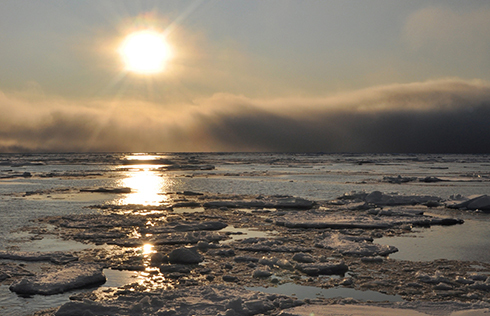An old adage popularized by Benjamin Franklin says that "an ounce of prevention is worth a pound of cure." Many of us in the marine conservation community believe that would, indeed, be a good way to manage our nation's ocean fish. But that's not happening. Too often, fisheries begin in a new location, or target a new species, without any scientific evaluation of potential adverse effects on the health of the ecosystem. Instead of employing management measures to prevent trouble, we've been spending our resources on curing difficulties that might have been averted.
And now, unprecedented shifts in the range and behavior of fish populations because of increasing water temperatures, combined with a growing global demand for seafood, are creating pressure to expand fishing to new geographic areas or to fish that have never been major commercial fishing targets. But if management of fishing in U.S. waters starts only after damage has already been done, we're ignoring Franklin's good advice. Without taking strong, proactive steps, we will continue to chase problems rather than prevent them.
Congress should address this weakness as it updates the primary law governing management of our nation's ocean fish--the Magnuson-Stevens Act. While U.S. efforts to curb overfishing and restore depleted fish populations stand as one of the great ocean conservation success stories of the past decade, more can be done to shore up the health of the marine ecosystems that support these fish.
We need a new national policy that guides federal managers to "start smart" by factoring in, up front, all available research on potential damage to marine ecosystems that would occur with new or expanded fishing activities. This would benefit ocean ecosystems as well as the residents of coastal communities who depend economically on a healthy and vibrant ocean.
A great example of starting smart can be seen up north. As the Arctic ice cap melts, it's opening new places and opportunities to fish commercially. Fortunately, forward-thinking members of the North Pacific Fishery Management Council realized that they should evaluate the related environmental impacts before any new fishing starts. Beginning in 2006, the council hosted many meetings with communities in the region and other engaged stakeholders. Three years later, the council wisely opted to prohibit any new commercial fisheries until it collects enough data to sustainably manage them.
Precautionary action like this will help contribute to more productive ocean ecosystems. Unfortunately, there are no national policies to ensure that this science-based approach is used consistently around the country. Some councils do proactive planning, and others do not.
Evaluating the potential ecological consequences of fishing--as well as a fish population's abundance level, reproductive capacity, ability to withstand fishing, and role in the food web--in advance of allowing a fishery to start is a common-sense approach that could help identify and mitigate problems before they start. Congressional leaders should take this opportunity to promote this important aspect of ecosystem-based fishery management on a national scale -- so that we can apply Franklin's sage "ounce of prevention" advice to guide informed, proactive fishery management decisions.

